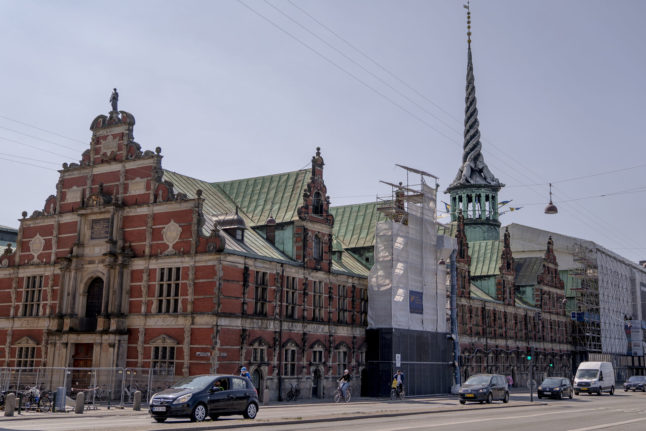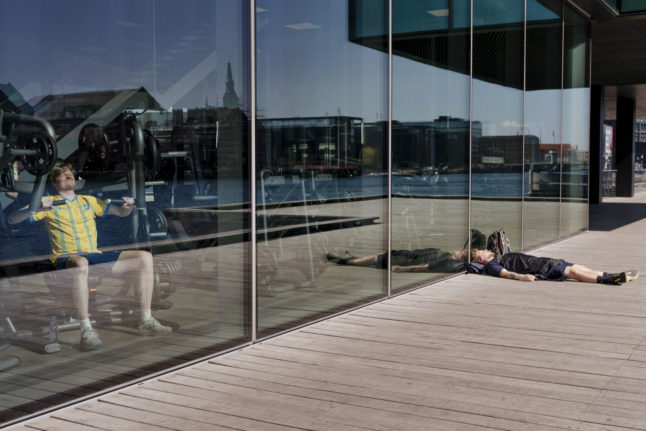More politics on the table with holidays over
July is usually the quietest month of the year in terms of political news, with parliament on holiday for the entire month. That changes in August, so some political news is likely.
This could start with a potentially controversial topic, if the government continues with a plan announced at the end of July to restrict demonstrations that involve burning religious texts like the Quran.
Opposition parties on both the left and right wings have already expressed opposition to the plan and the topic itself is a divisive and emotive one.
READ ALSO: EXPLAINER: Can Denmark make it illegal to burn holy texts?
Back to school and work with smaller class sizes
After the summer holiday, most schools, kindergartens and work places are back to normal operations on Tuesday August 1st. In the case of schools, classes may not resume until later in the month, after teachers have spent some time preparing the new school year.
A key different in August 2023 is that new classes in grades “0” to 2 (aged 6-8 years) at elementary schools (folkeskoler) will be limited to a maximum of 26 children, rather than the old limit of 28 students.
Once the daily school run is underway again, parents and kids can look forward to their next break during the Autumn holiday (efterårsferie), which runs from October 14th to 22nd. The autumn 2023 term ends with theChristmas holiday (juleferie), starting December 22nd through to January 3rd, 2024.
Dates will differ for private schools. All municipalities post the school term dates on their websites – see Odense Municipality’s website here for an example.
Festival season isn’t over yet
The Roskilde Festival seems like a while ago and July’s weather was not exactly festival-friendly, but there’s still hope for those who enjoy the summer vibe of music festivals and major sporting events.
August music festivals include the chillout vibes of the electronic festival Stella Polaris and, right at the end of the month, the more upbeat Strøm Festival in Copenhagen.
If your tastes have a more classical leaning, you can also try the Copenhagen Opera Festival, which takes place from August 11th-20th. The opera festival includes classic operas interpreted with a contemporary vision, newly commissioned productions, world premieres and classics with world-renowned soloists, conductors and directors.
There will be family-oriented performances and a large number of events, according to the festival’s website, where you can check the programme. The various events will take place at a range of locations including some you might not otherwise get the chance to see the inside of, such as Børsen and Kastellet.
Late summer sporting events to get the pulses racing
Denmark now seems to be permanently enthralled by cycling and those with Tour de France withdrawal can bask in the Postnord Denmark Tour, the country’s traditional pro cycling race which takes in some of the country’s best-known routes, including some spotted during last year’s Tour de France Grand Depart.
The women’s national football team will be hoping to advance in the World Cup by winning their final group stage match against Haiti on Tuesday August 1st. The tournament, hosted by Australia and New Zealand, concludes on Sunday August 20th in Sydney.
READ ALSO: How to watch the Women’s World Cup in Denmark
Free whooping cough vaccine during pregnancy reinstated
A free vaccine against whooping cough will again be offered during pregnancy from August until at least the end of the year.
While the government has already stated it wants a permanent free whooping cough vaccination programme during pregnancy, it is still working on finding financing for this. The Health Ministry said in July that this will be covered by the draft 2024 budget, which is likely to be presented this month.
The vaccination, which has been offered as a single-dose injection at GP clinics, is intended to protect newborn infants during their early months, until they can receive the vaccination themselves.
Vaccination against whooping cough during pregnancy was initially offered in 2019 during an epidemic of the infection and was extended several times, most recently in January, but expired at the end of March.
However, case numbers are now increasing according to the Danish Health Authority, causing the vaccination’s reintroduction, initially on a temporary basis.



 Please whitelist us to continue reading.
Please whitelist us to continue reading.
Member comments